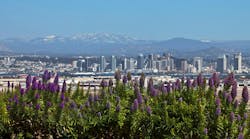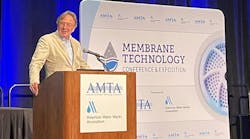BOSTON, MA, Sept. 8, 2015 -- The Environmental Protection Agency (EPA) has proposed modifications to the draft General Permits for Stormwater Discharges from Small Municipal Separate Storm Sewer Systems (MS4) in New Hampshire based on comments received. These proposed modifications both clarify and increase flexibility to the permit requirements by aligning it more closely with New Hampshire State Standards.
On February 12, 2013, EPA proposed a new MS4 general permit for 60 New Hampshire communities. Likewise, the Agency extended its comment period twice for this draft permit and is now proposing modifications based on comments received. With this proposal, EPA reopens a public comment period only on modifications to section 2.1.1, 2.2, 2.3.6, Appendix F, and Appendix H of the NH MS4 general permit.
The proposed language changes to the reopened sections, along with statement of basis for the proposed changes can be found here. In addition, all comments received on the proposed language modifications will be posted on the same website, and EPA will take comments on the submitted comments until November 20, 2015. The Proposed Modifications are:
- The language in sections 2.1.2, 2.2 and Appendix F to allow for the use of compliance schedules. The Agency proposes this change to be consistent with recently updated water quality standards in the State of New Hampshire that allow for the use of compliance schedules in National Pollutant Discharge Elimination System (NPDES) Permits, which includes the MS4.
- The proposed modifications to section 2.3.6 of the draft permit (Post Construction Standards) are in response to multiple comments on this section seeking clarification of permit requirements. Section 2.3.6 has been modified to provide clarity of requirements and closer adherence to State law. The proposed changes in this section are based on NH Alteration of Terrain Permit requirements and acknowledge the fact that the least expensive way to decrease flooding and decrease the pollutant load delivered by stormwater to local waterbodies is through the use of low-impact-design techniques and green infrastructure during new development and redevelopment.
- The requirement of additional controls on discharges of certain pollutants found in stormwater to protect water quality. Pollution from urban stormwater runoff contains nutrients, bacteria, pathogens, chloride, solids, oil, grease, and metals and is the leading cause of waterbody impairments in New Hampshire. The additional controls are expressed as clarification language in section 2.2 and Appendix H, and is also in response to multiple comments seeking clarification on the requirements contained in these sections of the draft permit.
The sections with the modifications are now open for public comment from September 1 to November 2, 2015 with additional time for interested parties to comment on the comments received, which will end November 20, 2015.
See also:
"EPA launches fourth annual green infrastructure Campus RainWorks Challenge"
"EPA proposes new rules to improve waste management, protect waterways"
###


